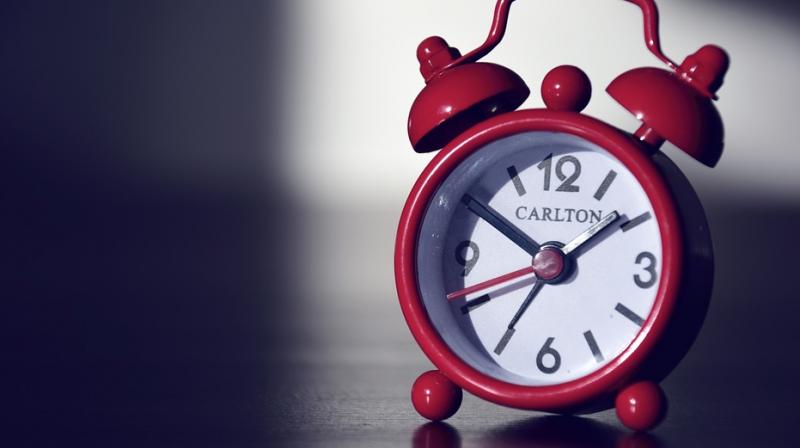Here's how one may be able to cure insomnia
National Sleep Foundation says sticking to sleep schedule where one goes to bed and wakes up at same time helps cure sleeplessness.

Washington DC: Sometime or the other, we have all tossed on our beds, restless, just to be able to sleep.
Fortunately, there are a number of steps you can take to tackle mild insomnia. Some are pretty obvious, but others may surprise you.
Firstly, the National Sleep Foundation recommends sticking to a sleep schedule. Try to go to bed at the same time and wake up at the same time, even at weekends: this will help regulate your body clock.
If you simply must go on an after work bender on Friday night, at least try to get up as close to your normal waking hour as possible on Saturday, reports CNN.
You pre-bedtime rituals are also hugely important. Try having a relaxing, soothing routine activity right before going to bed, such as having a bath or reading a book.
Avoid the bright lights of mobile phones or laptop screens, which can stimulate your brain and prevent you from dropping off quickly. Avoid having heated discussions or arguments with a spouse or partner. Just chill and unwind.
Daily exercise is also important. Vigorous exercise is best, but even moderate activity is better than nothing. This can be done at any time of day - although obviously not at the expense of your sleep.
And to those who think a wee night cap can help them drop off, the Sleep Foundation advises avoiding alcohol, cigarettes or heavy meals just before going to bed. These can cause discomfort and disrupt sleep. It's best to have your evening meal at least two to three hours before bedtime, and if you get peckish later, have a light snack about 45 minutes before getting into bed.
Keep your room cool and dark - darkness cues the brain to produce melatonin, the hormone that regulates sleep. Melatonin cools your internal body temperature, which should reach its lowest point between 2 and 4am. The Sleep Foundation recommends a bedroom temperature of about 15 to 20C.
Oddly enough, if you can't get to sleep, doctors advise actually getting out of bed. Sleep expert Dr Wendy Troxel explains that you must train your brain to realise that bed is primarily for sleep and sex, not worry or stress.
Speaking to Byrdie magazine she says: "Our brains learn by association, and to sleep well, you want your brain to have a strong learned association between the bed and sleep."
The longer you lie in bed worrying about not sleeping, the less likely it is you will fall asleep.
"The key is to avoid associating your bed with being awake," says Richard Wiseman, a psychology professor at the University if Hertfordshire. In his 59 Seconds video, Wiseman recommends getting out of bed and doing something like a jigsaw puzzle or a colouring book.
If all else fails, chuck on a pair of warm, woolly socks. A study by Swiss researchers published in the journal Nature found that warm feet and hands were the best predictor of rapid sleep onset.
It was thought warming up your feet, either through socks or a hot water bottle, shifts blood flow from your core to your extremities, which cools down your body and makes it ready for sleep.

